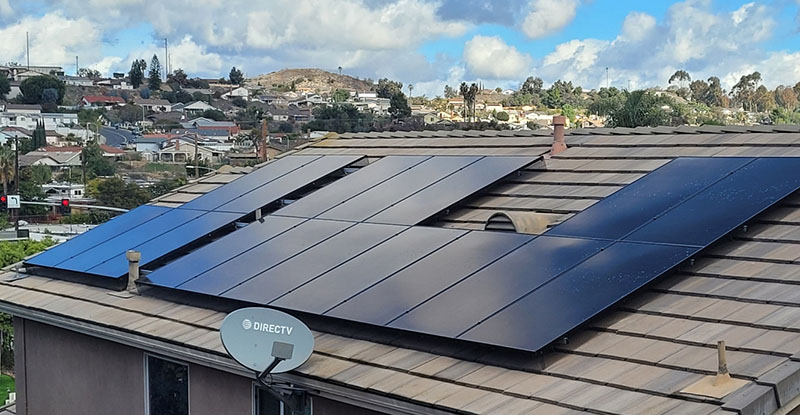Introduction

In today’s world, the need for reliable and sustainable power sources has become increasingly important. When it comes to meeting our energy needs, two popular options are solar power and generators. Solar power utilizes sunlight to generate electricity, while generators rely on fuel to produce power. Choosing the right power source for your needs requires careful consideration of factors such as cost, environmental impact, and effectiveness. In this article, we will compare solar power and generators, providing you with the necessary information to make an informed decision for your energy needs.
Overview of Solar Power and Generators
Solar power refers to the energy generated by harnessing sunlight through solar panels. It is a renewable energy source that produces clean electricity with no emissions. On the other hand, generators are devices that convert fuel, such as gasoline or diesel, into electrical energy. They are commonly used as a backup power source during emergencies or in areas without access to the grid. Both solar power and generators have their advantages and disadvantages, which we will explore in the following sections.
Importance of choosing the right power source
Choosing the right power source is of utmost importance as it directly impacts the reliability, efficiency, and cost-effectiveness of your energy supply. With increasing concerns about environmental sustainability, selecting a clean and renewable power source like solar power can greatly reduce carbon emissions and contribute to a greener future. On the other hand, generators can provide a temporary and reliable backup power solution during emergencies or in areas with limited access to the grid. Understanding your power needs and considering factors such as cost, environmental impact, and long-term benefits will help you make an informed decision.
Solar Power
Solar power is a renewable energy source that harnesses sunlight to generate electricity. It involves the use of solar panels, which convert sunlight into usable energy. Solar power is clean, emission-free, and abundant, making it an attractive option for powering homes and businesses. It can also provide independence from the grid, allowing individuals to have control over their energy usage. Additionally, solar power can reduce electricity bills and provide long-term savings.
Advantages of Solar Power
Solar power offers numerous advantages that make it an attractive choice for homeowners and businesses. First and foremost, it is a renewable and sustainable source of energy, meaning it will never run out. Additionally, solar power is clean and emission-free, contributing to a healthier environment. It also provides independence from the grid, allowing individuals to have control over their energy usage. Solar power can also lead to long-term savings by reducing electricity bills.
Disadvantages of Solar Power
Despite its numerous advantages, solar power also has a few disadvantages. One major drawback is its high initial cost, which includes the installation of solar panels and related equipment. Solar power also relies on sunlight, making it less effective in areas with limited sunlight or during cloudy days. Additionally, solar panels require a significant amount of space for installation, which may not be feasible for individuals with limited rooftop or land space.
Generators
Generators are widely used as a backup power source when electricity from the grid is unavailable. They provide instant power and are often used during emergencies or for temporary power needs. Generators are highly reliable and can supply large amounts of power for extended periods of time. However, they require a constant supply of fuel, such as diesel or gasoline, and emit noise and pollutants. Generator maintenance and fuel costs can also add up over time. Despite their advantages, generators are not as environmentally friendly as solar power and can contribute to air pollution and carbon emissions. When comparing solar power vs. generators, it is important to consider the environmental impact and long-term costs.
Advantages of Generators
Generators offer several advantages as a power source. Firstly, they provide instant power, making them ideal for emergency situations where electricity from the grid is unavailable. Generators are also highly reliable, capable of supplying large amounts of power for extended periods of time. Additionally, they are versatile and can be used for various applications, such as powering construction sites or outdoor events. Despite the drawbacks, generators remain a popular choice for backup power due to their dependability and immediate availability.
Disadvantages of Generators
Power generators do have a few disadvantages to consider. Firstly, they require a constant supply of fuel, which can be expensive and contribute to pollution. Additionally, generators can be noisy, creating a disturbance for those nearby. They also require regular maintenance to ensure optimal performance. Finally, generators have a limited lifespan and may need to be replaced after a certain number of years. Despite these drawbacks, generators can still be a reliable source of backup power in certain situations.
Cost Analysis
When it comes to cost analysis, comparing solar power and generators is essential. Solar power systems have a higher upfront cost, primarily due to the installation of solar panels and other equipment. However, over time, solar power can lead to significant long-term savings, as it relies on renewable energy sources. On the other hand, generators have a lower initial cost but require continuous fuel supply, resulting in ongoing expenses. It is crucial to consider your energy needs and budget when making a decision between the two options.
Comparing the cost of Solar Power and Generators
- Solar power is a one-time investment that can provide energy years to come, generators require ongoing fuel costs.
- Solar power is a renewable energy source, making it an environmentally friendly choice compared generators that rely on fossil fuels.
- Solar panels have little to no maintenance costs, while generators require regular upkeep and servicing.
- Solar power systems can increase the value of your property, while generators do not add any value to your home.
- With solar power, you can potentially qualify for tax incentives and rebates, saving you money in the long run compared to the continuous expenses of fuel for generators.
Long-term savings and benefits
One of the significant advantages of solar power over generators is the potential for long-term savings and benefits. While the upfront cost of solar power installation may be higher, it pays off in the long run. Solar power systems have minimal operating costs, as they rely on sunlight to generate electricity. This eliminates the need for fuel and reduces ongoing expenses, leading to significant savings over time. Additionally, solar power systems require minimal maintenance and are designed to last for decades, further adding to their long-term benefits.
Environmental Impact
Solar power is a clean and sustainable energy source, making it highly beneficial for the environment. Solar panels produce electricity without emitting harmful pollutants or greenhouse gases. They contribute to reducing carbon emissions, air pollution, and dependence on fossil fuels. On the other hand, generators rely on fossil fuels, such as gasoline or diesel, which release harmful emissions into the atmosphere, contributing to pollution and climate change. Choosing solar power over generators can help protect the environment and promote a cleaner and healthier future.

Environmental benefits of Solar Power
Solar power offers numerous environmental benefits. Solar panels produce clean and renewable energy, reducing the reliance on fossil fuels and decreasing carbon emissions. By harnessing the power of the sun, solar energy helps mitigate climate change and air pollution. Additionally, solar power does not require water for operation, which conserves valuable freshwater resources. Choosing solar power over generators can significantly contribute to a greener and more sustainable future.
Impact of Generators on the environment
Generators can have a significant impact on the environment. They emit harmful pollutants, such as carbon dioxide, nitrogen oxide, and particulate matter, which contribute to air pollution and climate change. Generators also require the use of fossil fuels, further depleting non-renewable resources. Additionally, the noise pollution generated by generators can disturb wildlife and have negative effects on ecosystems. Overall, generators have a detrimental impact on the environment and should be used sparingly and responsibly.
Conclusion
In conclusion, selecting the right power source is crucial for meeting energy needs in an efficient and environmentally friendly manner. While solar power offers numerous advantages, such as clean energy and long-term savings, generators may be more suitable for certain situations. Virginia residents should carefully consider their specific requirements and environmental concerns when choosing between solar power and generators.
Choosing the right power source for your needs
When deciding between solar power and generators, it is essential to consider your specific energy requirements. If you require a consistent and reliable source of power, generators may be a more suitable option. On the other hand, if you prioritize clean and renewable energy, solar power is the way to go. Consider factors such as budget, environmental impact, and long-term savings before making a decision.
Recommendations and considerations for Solar Power and Generators.
When deciding between solar power and generators, it is crucial to consider a few recommendations and considerations. For solar power, think about the availability of sunlight in your area, the space required for installation, and the longevity of the equipment. For generators, consider the noise level, fuel availability, and maintenance requirements. It’s also advisable to consult with professionals in the field to ensure you make the best choice for your specific needs.
- Gender: All genders (Business-focused product often transcends personal gender preferences)
- Age: 30 – 65+ (Typically, this age range includes individuals who are in decision-making positions regarding business operations or investments)
- Interests: Sustainable energy – Business development – Entrepreneurship – Environmental conservation – Real estate – Commercial property management
- Advertise on: LinkedIn, Google Ads, Facebook (business pages and groups), Twitter
